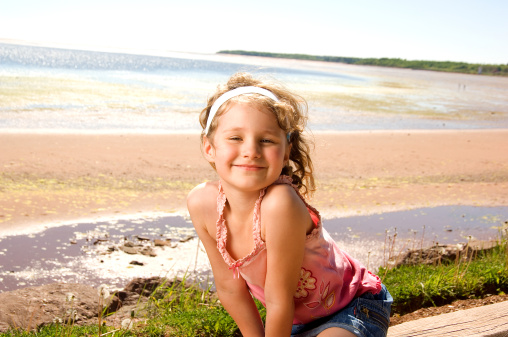But, whilst we often accept our part in much of their formative years, often we are so caught up in our own pre-occupation with the body beautiful that we can overlook the role we play by unintentionally encouraging unhealthy emotional habits. Whether you are a mother or a father, with sons, daughters or both – ensuring body confidence in children starts with you.
Undermining beauty
Beauty comes in all shapes and sizes. It isn’t a number on the scales, it isn’t a size and it isn’t a colour. The media/advertising industry racket is responsible for promoting unattainable images in order to encourage potential customers to engage with their product which is specifically designed to be aspirational – promoting specific ideas about health, beauty and happiness.
Though most of us are aware of airbrushing and realise that not even models look like their overly touched-up, slimmed down pictures, only one in eight women claims to be happy in her own skin. Men tend to be a little more confident but over a third have stated they would shave one year from their lifespan for the change to have their ideal body composition.
Such worrying results show that years of being bombarded with increasingly unrealistic images is having an effect upon the majority of the population. Inevitably, our children are all the more vulnerable to these messages when they see their parents behaving in ways that support these unattainable ideals.
Unhealthy habits
Along the way, it is easy to pick up little habits that we don’t pay enough attention to. Making negative comments after standing on the scales and commenting on appearances are things most of us will do, to some degree, without giving much thought to what messages our children may be picking up.
I recently caught my daughter standing on the scales and being thrilled with the result. After a recent dramatic weight change, I can see that this was behaviour she had seen in me and, whilst she was being positive, it made me uncomfortable to see her attributing emotions with weight so young. The scales had to go.
The benefit of having been overweight for a few years, and now having a few thoughtless “you’ve lost too much weight” type of comments, from well-meaning people, has meant that commenting on people’s appearance is not something I have ever engaged in. Weight issues aside, comments about people’s clothing, make-up, hair-style and other physical features are often made in judgement (positive or negative) and put too much emphasis on the opinion of the critic. Something, most will agree, we wouldn’t like our children to do.
Good Habits
Body confidence is incredibly important. Research shows that our sense of self-worth is strongly linked to our self-image and, in turn, this determines much of our behaviour and the choices we go on to make. From unhealthy sexual relationships to a lack of general motivation, our children can suffer greatly from negative body image messages. Instilling them with confidence can help them to be happy, confident and less susceptible to peer pressure.
So, how can parents help?
If your children grow up seeing you loving your body, despite its many flaws, in the face of the unrealistic images that surround us then they stand a better chance at growing up with that same outlook and confidence. Here are a few ways you can promote a better body image for your children:
Throw out your scales. They don’t tell you anything your clothes can’t, anyway. Read more here.
Tell your children that you feel beautiful. This is what they see when they look at you, too. Reaffirming these beliefs helps them to develop the strength of their own views.
Talk about your flaws positively. Your body is the map of your life. Scars tell stories, stretch mark new beginnings. Be proud of everything your body has been through and celebrate each little reminder.
Use neutral words when it comes to other people’s appearance. Large, rather than fat. Small, rather than thin. This may seem pedantic but many words have become loaded with negative emotion over the years and avoiding using them in favour of more neutral terms helps children to see people for who they are, rather than what they look like.
Celebrate differences. Talk about what is beautiful to your children and marvel at the variety in their responses. Children have a wonderful way of teaching us about life’s most important messages.







